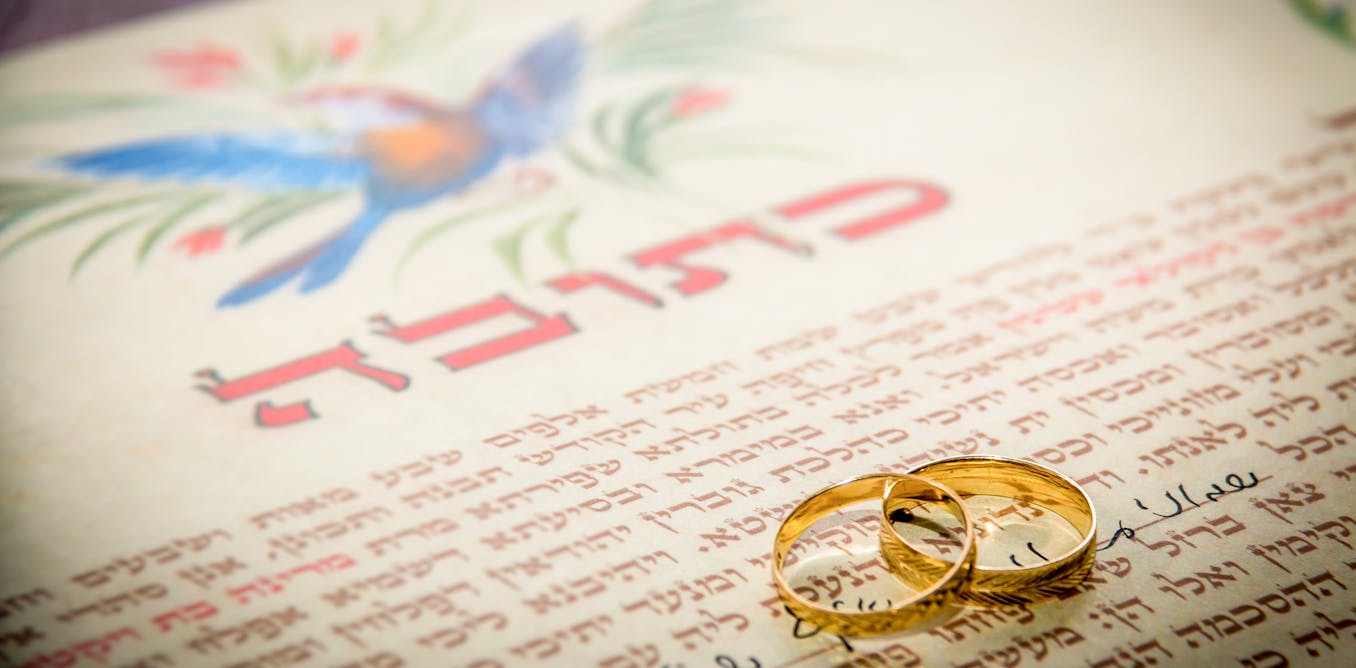
"Traditional Jewish weddings share key aspects with Christian weddings, historically seen as property transfers, where a woman shifts responsibility from father to husband."
"Feminism has significantly influenced wedding traditions, allowing couples to innovate ceremonies, combining cultural backgrounds and ideals of marriage equality."
"In interfaith weddings, many couples reflect familial and cultural backgrounds in their ceremonies, adapting to modern values of feminism and inclusivity."
"The 'ketubah,' or marriage contract, exemplifies how marriage equality and feminist values are reshaping traditions, highlighting the evolution of commitments in Jewish weddings."
Traditional Jewish weddings historically served as property transfers, transitioning a woman's responsibility from her father to her husband. This concept parallels traditional Christian weddings, though modern feminist influences have prompted changes. Couples often innovate their ceremonies to reflect egalitarian values, like shared parental walks down the aisle or revisiting the role of the 'ketubah'—the Jewish marriage contract. Interfaith couples, as explored in 'Beyond Chrismukkah,' illustrate this dynamism, merging cultural identities and contemporary ideals of gender equality into evolving wedding customs.
Read at The Conversation
Unable to calculate read time
Collection
[
|
...
]